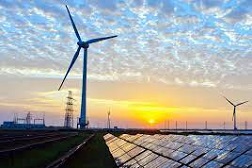BY YANET FANTAYE WOGAYEHU – Africa should harness investment and tapping vast green energy resources to drive sustainable industrialization and trade across the continent, the Economic Commission for Africa (ECA), Acting Executive Secretary, Antonio Pedro, has said.
Addressing the 43rd Ordinary Session of the African Union Executive Council in Nairobi, Kenya Mr. Pedro noted that the African continent had significant resources to power a green and sustainable industrialization and make the African Continental Free Trade Area (AfCFTA) work, but these investments must be prioritized.
Mr. Pedro stressed that enabling infrastructure, strong productive capabilities, expanding exports and intra-African trade through the AfCFTA must be accompanied by effective industrialization and trade policies to stimulate private sector investments.
African Multilateral Development Banks should lead in crowding investments to make this a reality, Mr. Pedro urged, stressing that these investments could also be complemented by money from Special Purpose Vehicles, pensions funds and the diaspora.
Harnessing the full potential of the Congo River and building Inga III and IV projects, for example, can generate 70000 MW, enough to benefit about 15 African countries.
“If realized, this could be a game changer for infrastructure development, being the largest single source of untapped renewable energy globally, with about double the capacity of China’s Three Gorges Dam, ” he said, adding that this development would also enable interconnectivity between African nations and power Africa’s industrialization agenda.
Mr. Pedro highlighted that Africa – rich in battery minerals – can be a global leader in the electrification of transport systems and deployment of solar and wind energy which are critical transitions to meet the world’s zero targets. Besides, a key priority for Africa was to ensure its mineral resources contributed to endogenous growth.
As the world switches from coal and oil to clean energy demand for minerals such as cobalt, manganese, and platinum group minerals, will increase up to five-fold. Africa is a key supplier of these green energy minerals, accounting for over half of the global supply.
The development of the transboundary DRC-Zambia Special Economic Zone for the battery and electric vehicles value chain could be a game changer, increasing Africa’s participation in a global market which could be worth $7.7 trillion by 2025 and $46 trillion by 2050, Mr. Pedro noted.
“With the demand for clean energy rising, it is time for Africa’s renewable energy market to establish itself as a global player and attract increased global investment,” said Mr. Pedro, citing ECA’s analysis which shows that a 10 per cent share of the global battery and electric vehicle market could easily add $200 billion dollars to Africa’s economy.
With about 60% of the global solar energy, Africa should also harness its solar and wind energy potential which could boost countries such as Chad and Niger as major players in the livestock sector, especially in the meat and leather value chains.
In addition, Africa’s carbon credit market was an opportunity to generate over $50 billion a year in revenues for the continent’s climate finance needs, said Mr. Pedro, emphasizing that the carbon credit market will create new job opportunities and contribute to environmental, social, and economic sustainability while ensuring access to clean energy and water.

